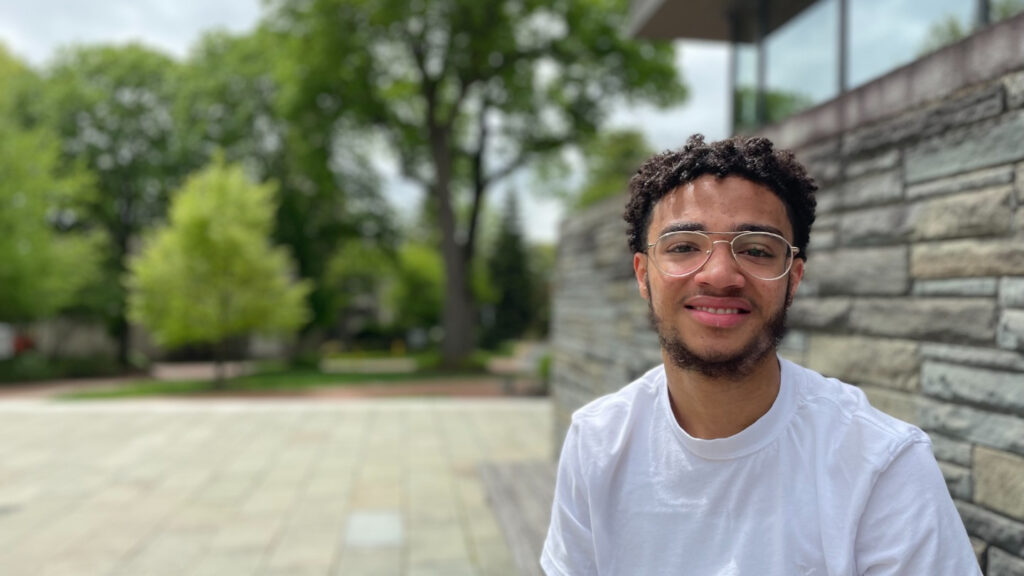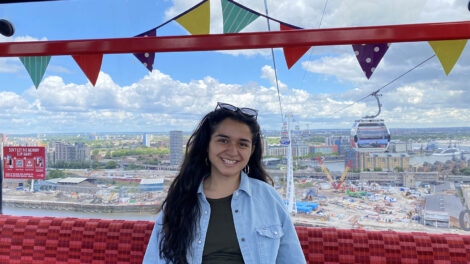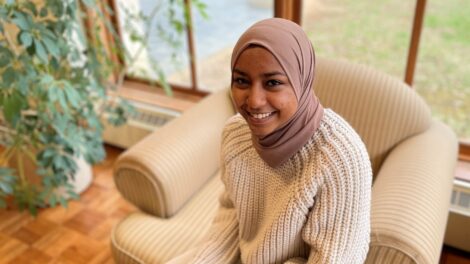Changing the world through economics
By Bryan Hay
Ruben Hernandez ’24 has a full summer and fall ahead of him as he pursues and enhances his interests and experiences in fostering diversity in economic development and improving the lives of people living in economically distressed communities.
His first leg of his summer journey is at the Expanding Diversity in Economics Summer Institute (EDE) at University of Chicago, a competitive undergraduate program that strives to encourage more college students from a broad range of backgrounds to study economics and inspire them to consider economics as a way to improve lives.

Ruben Hernandez ’24 is participating in two competitive undergrad programs this summer and fall
In September, Hernandez will travel to Costa Rica as part of the Benjamin A. Gilman International Scholarship Program, another highly competitive undergraduate program, which is awarded by the U.S. Department of State and gives students the opportunity to study or intern in foreign countries.
“I think these programs are definitely going to open my mind to different aspects of economics,” says Hernandez, who’s majoring in economics and mathematics, considering a minor in Spanish, and planning on graduate school after Lafayette.
As a Gladstone Whitman ’49 Fellow, he already received a foretaste of how these transformative opportunities can change perspectives. Last summer, he participated in Lafayette’s Economic Empowerment and Global Learning Project (EEGLP) with Prof. Gladstone “Fluney” Hutchinson, associate professor of economics and policy studies and founder of EEGLP, who’s co-leading a multiyear collaborative co-learning effort aimed at bringing social and economic redress to communities in West Baltimore.
The collaboration involves Lafayette faculty and students partnering with diversely experienced West Baltimore stakeholders in developing recommendations to transform communities into places of economic prosperity and community wealth, and improve their well-being.
“That was a great experience, which helped open my eyes to the good that can be achieved with a Lafayette economics degree. And I’m very grateful for this experience,” says Hernandez, who gathered GPS data and studied artistic and cultural venues in West Baltimore—museums, stadiums, and cultural centers—to help measure their effect on the quality of life in West Baltimore.
“He executed his responsibilities, including building synergies and synthesis across the multiple disciplines and experiences, with good efficiency and results,” Hutchinson says of Hernandez’s work in West Baltimore. “The project was notably advanced by Ruben’s contributions.”
Hutchinson also credited Hernandez’s openness and commitment to examining his own views and to understanding and learning new perspectives.
“He demonstrates great social manners and deep respect for the perspectives of peers and was always willing to dig for under-appreciated dimensions of the problematics of issues being discussed,” Hutchinson says. “Ruben is particularly keen on identifying and establishing the boundaries to the argument being discussed or issue being explored. He has a promising future and will be a credit to the College in his career and life.”

